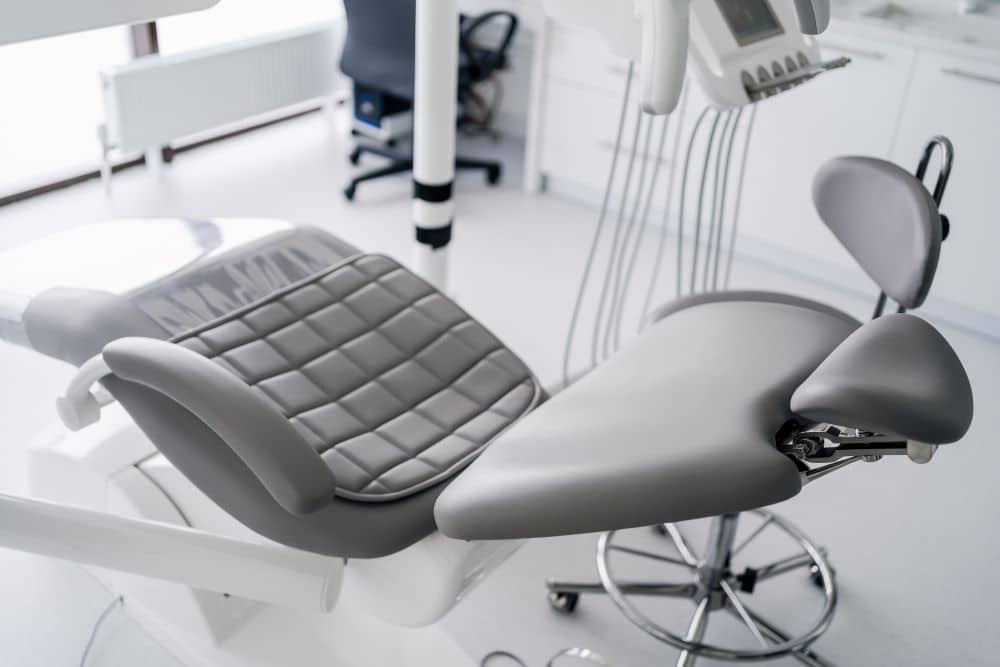Dentists offer localized services, and when most people start looking for a dentist, their local area is where they’ll begin their search. It’s no secret that when we need a dental check-up or treatment, most of us turn to Google, searching for dentists near us. That’s where local SEO comes into play.
SEO, in general, is crucial for any business, including dental practices. It’s about optimizing your website and online presence to appear higher on the first page of relevant search results. I always advise the dentists for whom I design and build websites to focus more on local SEO, and I’ll tell you why.
Understanding Local SEO for Dentists
To understand local SEO for dentists, let’s start by defining some terms and concepts. Then, we’ll discuss how these concepts apply to dentists compared to other types of businesses.
What Is Local SEO?
Local SEO, or local search engine optimization, boosts your online visibility, aiming to attract more customers from specific locations. It involves using location-based keywords and strategies to rank higher in local searches.
Another aspect of local SEO entails obtaining local listings in online directories like Google My Business (GMB), Bing Places, and Yelp. These listings provide crucial information about your dental practice, such as the name, address, phone number, website URL, and business hours.
Accuracy is crucial for local listings. Ensure your information is consistent across all online directories, as search engines use this information to determine your credibility and relevance.
Why Local SEO for Dentists Matters
According to statistics from LinkedIn, 46% of all Google searches have local intent, meaning users search for businesses or services within their areas. This is especially true for those searching for services they will need to repeatedly travel to and from, such as doctors, dentists, and optometrists.
Local SEO for dentists is a digital marketing strategy that optimizes a dental practice’s online presence to attract local patients. It aims to improve your practice’s visibility in search engine results for relevant local search queries, such as “dentist near me” or “family dentist in [city].”
The Perks of Dental Local SEO
- Increased Visibility: With the rise of mobile searches, local SEO helps dental practices appear prominently in local search results, translating into more probability of bagging a new client.
- Attracting Local Patients: Dental services are inherently local, so local SEO enables practices to target their specific geographic audience, increasing website traffic, foot traffic, and patient appointments.
- Competitive Nature: The dental industry is highly competitive, with numerous practices in a given area. Local SEO helps practices stand out and gain an edge over competitors.
- Cost-Effective Marketing: Local SEO is cost-effective compared to traditional advertising methods and can provide a high return on investment.
- Trust and Credibility: Earning high rankings in local search results often elevates your trust and credibility among potential patients, suggesting that the practice is reputable and trustworthy.
Some Key Local SEO Strategies for Dentists
Over the years, local SEO has evolved and become more complex, making it crucial for dentists to have a well-rounded strategy. Here are some key strategies to help you get started:
A. Google My Business (GMB) Optimization
GMB optimization is crucial for dental practices because it is often the first point of contact between potential patients and your practice. Steps for optimizing GMB include:
- Claiming and verifying the listing.
- Providing accurate NAP (Name, Address, Phone) information.
- Putting in the list of services with descriptions.
- Selecting relevant categories.
- Adding high-quality images.
- Encouraging reviews.
- Regularly updating the listing with relevant information.
- Utilizing GMB features such as posts and Q&A to engage with potential patients.
B. On-Page SEO
On-page SEO refers to optimizing your website’s content and technical elements for search engines. Dentists can improve their on-page SEO by:
- Conducting keyword research and incorporating relevant keywords into website content.
- Creating high-quality, informative content that addresses patients’ concerns and questions.
- Creating and tweaking title tags, meta descriptions, and header tags for keyword consistency.
- Improving site speed and ensuring it is mobile-friendly.
C. Local Listings and Citations
Local listings are online directories listing businesses in a specific area, such as Yelp or YellowPages. Getting listed accurately on these directories can help improve your local SEO by providing backlinks to your website and increasing your online visibility.
Citations refer to mentions of your practice’s NAP information on other websites, such as directories or social media platforms. Ensure your citations are consistent across as many sources as possible to improve your local SEO, and you can do it by:
- Claiming and verifying your practice on popular directories.
- Optimizing your business profiles with accurate NAP information and relevant categories.
- Requesting that your satisfied patients leave reviews on these directories.
- Using local keywords in your content.
I always encourage dentists to include local keywords in their website content, such as the name of their city or neighborhood. For example, instead of “dentist” as a keyword, they can use “New York City dentist” to target potential patients in that specific location.
The more specific you can be with your keywords, the better. For example, New York is quite broad, so targeting a specific neighborhood like “Manhattan” or “Brooklyn” can help.
Additionally, creating content that addresses local concerns and questions can also improve your local SEO. It helps to publish information about local events, news, and community involvement.
D. Online Reviews and Reputation Management
Everyone’s a critic, and online reviews play a significant role in the local SEO game. Positive reviews can improve your rankings and help attract potential patients, while negative reviews can have the opposite effect.
Encourage satisfied patients to leave reviews on your Google My Business profile, as well as other relevant directories like Healthgrades or ZocDoc.
Additionally, actively managing and responding to reviews, whether positive or not, signals to potential patients you care about their experience and opinions.
E. Regularly Update Your Website
Search engines always crave fresh content, so I recommend regular updates to your website and posting new blog posts or information to improve your local SEO. The trick is to align the content with relevant search intent, delivering value to your potential patients.
Consider sharing patient success stories, new services or procedures offered, or even tips for maintaining good oral health. Debunking common dental myths or addressing frequently asked questions can also help attract local patients.
F. Use Social Media to Reach Local Patients
Social media is another valuable tool for reaching and connecting with potential patients in your local area. Open and maintain accounts on platforms like Facebook, Instagram, and Twitter to engage with the community and share relevant content.
You can also use social media to promote special offers or events, showcase your expertise through educational posts, and interact with current and potential patients directly.
G. Monitor Your Progress and Adjust Accordingly
Finally, it’s essential to regularly monitor your local SEO progress and make adjustments as needed. Pay attention to which keywords are driving traffic to your website, as well as where that traffic is coming from geographically.
This data can help refine your strategy and target specific areas or services in high demand.
Final Thoughts on Local SEO for Dentists
Investing in local SEO for your dental practice can significantly benefit your online presence and attract more patients from your community. I have seen firsthand how implementing these tactics attracts more website traffic, improves search engine rankings, and, ultimately, leads to more patients walking through your doors.
Remember to approach local SEO with a mindset of providing valuable information and connecting with potential patients. Here’s an essential guide to SEO for beginners that could help you get started if you’re new.




